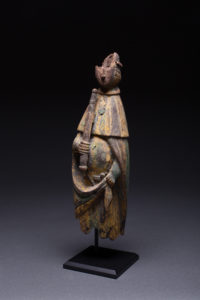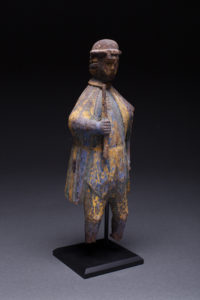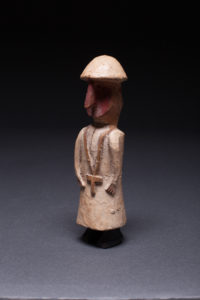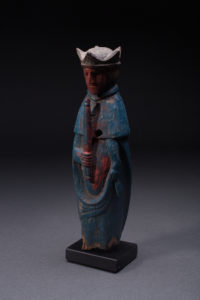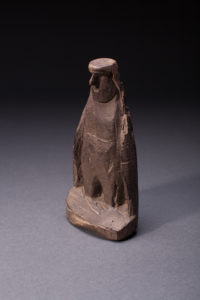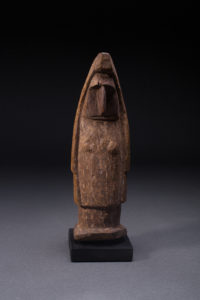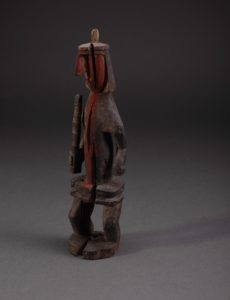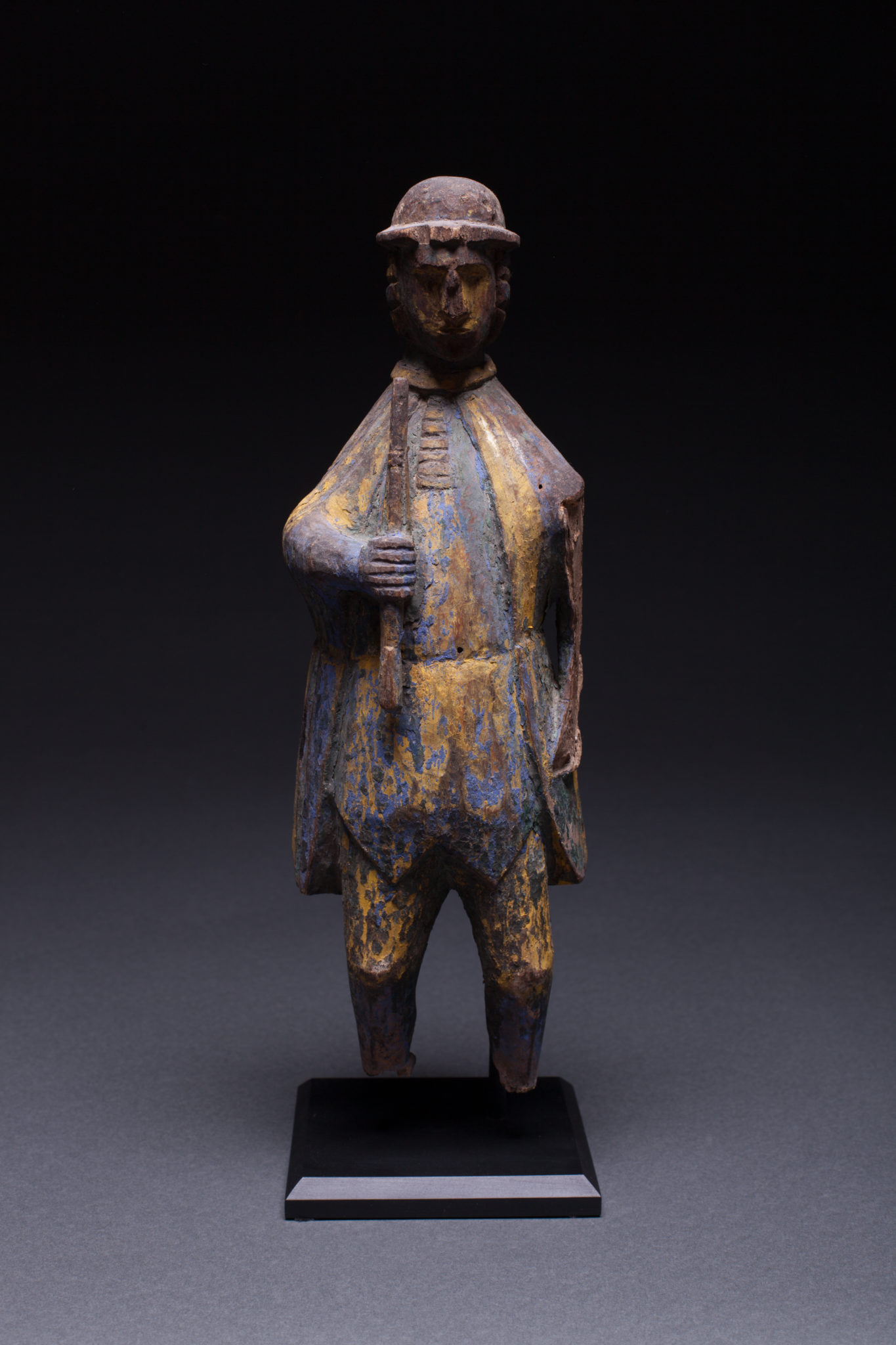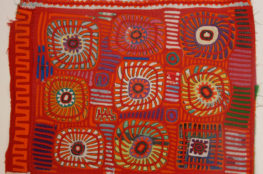Nuchugana (the plural of nuchu) are carved wooden figures used in spiritual healing ceremonies by the Guna* Indians. The figure is actually considered a storage vessel for a healing spirit that is summoned by a Guna healer (Ina Tuledi) when someone is ill. According to Mac Chapin, an anthropologist who lived with the Gunas, most nuchugana are carved to represent “wakka” — non-Guna people. Most commonly based on American or European characters, the carvers frequently use powerful people as models. According to Kit Kapp, who spent 11 years exploring Guna territory, they believed that people in power could inspire powerful spirits. So frequently nuchu figures depict politicians (Eisenhower, Churchill, JFK), soldiers (Macarthur, Eisenhower), priests or royalty.
Below you will see a number of images from the last two categories — Christian clergy members and royal (or at least courtly) figures. We often can’t quite determine which is which, since both groups can dress similarly. Although a crown tends to be a tip-off that a nuchu represents a king. Some of the nuchugana in this dual category are quite elaborately carved. In fact some are so fine, one might suspect they were created by a Santo carver. And perhaps they were. The first two pieces were the prize nuchu figures in the collection of Avon Neal and Ann Parker, the couple who co-wrote the seminal book Molas. These are very “fancy” and appear to be very early, and very worn, examples that may date to the 19th century – and little is known about their origin. Ann Parker says that her husband, Avon, was forced to retreat to a remote part of an island to negotiate their purchase.
*Spelling of the name of this culture has evolved over the years. Originally “Cuna” was the most common name/pronunciation. In the 1970s that evolved to Kuna. But several years ago a vote was taken to change the spelling/pronunciation to Guna. On this site we will often use either Guna or Kuna — primarily because a) Guna is the most appropriate name but b) many people have never heard the word Guna – and get confused until Kuna/Cuna is used.
